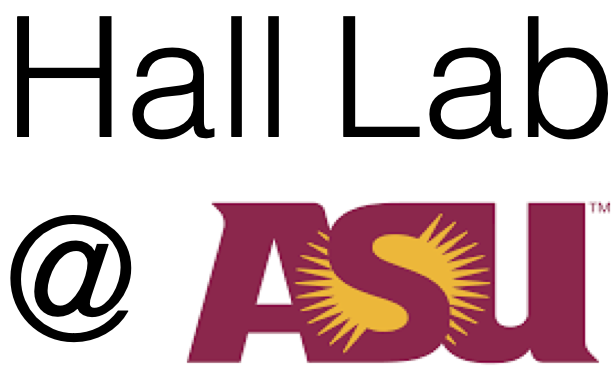March 2, 2020
Charting the way: How ASU’s inclusive charter is shaping university culture
Arizona State University’s School of Life Sciences was recently awarded Justice, Equity, Diversity and Inclusion ( JEDI) seed grants from The College of Liberal Arts and Sciences. Funds will be used to support efforts to improve student outcomes in biology and STEM programs via inclusive curriculums, mentorship and instruction. SOLS professor Sharon Hall is one of the primary applicants of the proposals, as well as JEDI special adviser to the director and chair of the school’s new JEDI committee.
“In the last year, there’s been a lot of movement at ASU in terms of institutional-level change,” explains Hall, of efforts to ensure ASU’s commitment to inclusion is exemplified in university culture. “It’s top of mind for many of our university leaders, including our new provost and executive vice presidents. We have a new Chief Diversity Officer in The College, and JEDI committees and task forces have been created across the university at the unit level. It’s an amazing moment where we can facilitate bottom-up grassroots initiatives.” Adds Hall, “A window of opportunity is open, and I feel positive and optimistic about the changes we’d like to make to better meet the charter.”
Hall points to numerous fellowship and graduate assistant calls for proposals that she says will enhance and improve diversity by reaching excellent scholars.
“When you’re aiming to diversify faculty and become more inclusive, you shouldn’t tokenize those you’re recruiting — no one wants to be the ‘only’ in a unit, in part because some people might ask you to represent the whole ‘x’ community,” says Hall, regarding the goal of helping attract and retain a more diversified faculty. “A better idea is to attract clusters of scholars who can help bring together an inclusive community that has more voice — it creates critical mass.”
Hall says one of the challenges of diversifying faculty is in ensuring university policies make the culture and climate welcoming for all staff.
“The SOLS JEDI committee is joining efforts by people at ASU who’ve been working hard for a long time to make our university more inclusive,” says Hall. “Groups across the university have been working to meet the ASU charter in all sorts of ways — and recently these bottom efforts are coalescing around coordinated support from the top.”
According to Hall, historically, efforts to improve diversity and excellence at the faulty level have been focused on supporting individual scholars to succeed in academia through mentoring, financial support, career readiness programs and pipelines to move from undergrad to graduate education and beyond.
“Now, what we’re aiming to work on is reforming the system, the institutional barriers that prevent us from reaching our potential as a university,” explains Hall. “If there are institutional barriers, then your success only goes so far. If a scholar experiences overt or implicit bias at a university, she won’t want to stay. Why would anyone stay where culture is not welcoming?”
Hall says all universities are soul searching right now, asking themselves, is there something about way we’re running things that can be improved?
“ASU is embracing this and saying, you know what, we’re going to look at policies, procedures, structures, culture — it’s all on table,” says Hall. “We’re looking at institutional culture at the leadership level on down.”
Hall says everyone in the university and in the community at-large can support these initiatives by first “doing the work,” starting by reading the work of scholars who have been analyzing this issue for decades.
“Institutional frameworks need to be reexamined to benefit from the excellence a diverse faculty brings,” explains Hall. “If you’re going to solve a problem, you don’t just walk into a solution with the first answer that pops into your head. You look at who else has been thinking about this, read their work, talk to people. I guarantee our faculty will be inspired by what ideas are already out there.”
Hall says unit-level JEDI committees and initiatives might have great ideas and support from the leadership, but there’s a need for all faculty to be on board and be part of what they want to see happen. “They need to recognize the benefit to them and their communities,” explains Hall. “A faculty incentive structure would be helpful, to encourage everyone to participate in these efforts to improve our culture, not just the people who already understand these issues.”
Hall says there is exciting and impactful movement happening across all units.
“We’re interested in discussing the ways we envision excellence in the university, including taking a hard look at promotion and tenure criteria and other policies” says Hall. “Are our policies so narrow that only a subset of the work that our scholars are doing ‘counts’ as research or teaching excellence? If so, that doesn’t make sense — we’re clipping our wings.” Adds Hall, “ASU is the type of place where innovative thinking thrives — but these ideas that we’re discussing about inclusion — they’re not new. They’ve been out there a long time, and people who have been pushing for change have been at this a while. What we’re seeing now, though, is a coalescence of bottom-up activism and leadership support. It’s an exciting time to be at ASU!”
